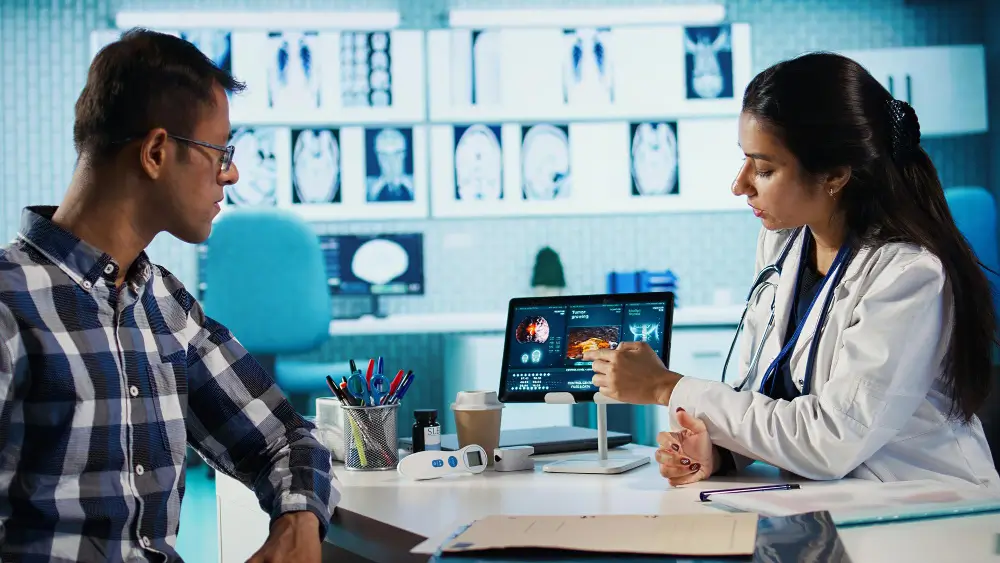Egg donation has transformed countless families’ lives — but the field is still evolving. With advances in genetics, AI-driven fertility matching, and embryo research, the future of egg donation looks brighter than ever.
For Indian egg donors, these innovations mean not only greater demand but also safer, more efficient, and more personalized experiences. This blog explores the future of egg donation and how Indian donors will play a central role.
Emerging Technologies in Egg Donation
Genetic Screening Advances:
- Clinics now use expanded carrier screening panels to test hundreds of genes.
- This ensures donors are not carriers of major genetic diseases.
- Future tests may detect even more subtle traits, improving compatibility.
Artificial Intelligence in Matching:
- AI tools are being developed to match donors and parents based on genetics, physical resemblance, personality traits, and preferences.
- This reduces wait times for matches.
Improved Egg Freezing & Storage:
- Vitrification (rapid freezing) has already improved success rates.
- Future advances may allow longer storage with no decline in quality.
Personalized Medicine in Egg Donation
- Fertility clinics are shifting toward personalized stimulation protocols.
- Genetic data and hormone profiles help determine the best medications.
- This reduces side effects and maximizes egg yield for donors.
The Role of Indian Egg Donors in the Future
- Rising demand: Indian and South Asian families in the U.S., UK, and worldwide continue to seek Indian donors.
- Global access: Technology will allow international parents to connect more easily with Indian-American donors.
- Cultural continuity: Indian donors will remain essential for families seeking heritage and identity.
Ethical Questions Ahead
- How much genetic information should donors share?
- Should donors be compensated more for specific genetic traits?
- Will AI-matching reduce privacy protections?
Indian donors must be informed and empowered to make decisions in this changing landscape.
Case Study – Technology Meets Tradition
Meera, a donor in California, was matched through a new AI-driven platform. Parents selected her not only for her Indian heritage but also for her educational background and genetic compatibility. She described the experience as ‘efficient but still very personal.’
Long-Term Outlook for Donors
- Donors will have safer procedures, fewer side effects, and more transparency.
- Compensation may rise with demand and scarcity.
- Future technology may even allow egg donation without invasive retrieval through lab-grown egg cells (still experimental).
Testimonials
“Genetic testing gave me peace of mind — I knew I wasn’t passing on health issues.” – A.D., Donor, TX
“The AI-matching process made me feel like the parents truly understood me.” – K.P., Donor, CA
FAQ
Q : Will technology make egg donation safer?
Ans : Yes, with more accurate monitoring and personalized protocols.
Q : Will Indian donors still be in demand in the future?
Ans : Absolutely — scarcity and cultural importance will keep demand high.
Q : Could egg donation eventually be replaced by artificial eggs?
Ans : Research is ongoing, but it’s decades away. Donors will remain essential for now.
Conclusion & Call to Action
The future of egg donation blends technology, genetics, and compassion. For Indian donors, this means new opportunities, greater protection, and continued demand.
Be part of the future of fertility:
By donating, you’re not only helping today — you’re shaping the families of tomorrow.

Dr. Pooja Patel
Dr. Pooja Patel is a Chief Surrogacy Coordinator at Surrogacy4all. She has 10 years of experience in Anesthesiology and critical care medicine.
She received her medical degree from Seth GS Medical College and K.E.M Hospital in India. She then completed an internship. She finished her Anesthesia residency at Grant Govt Medical College and JJ Group of Hospitals in India.










